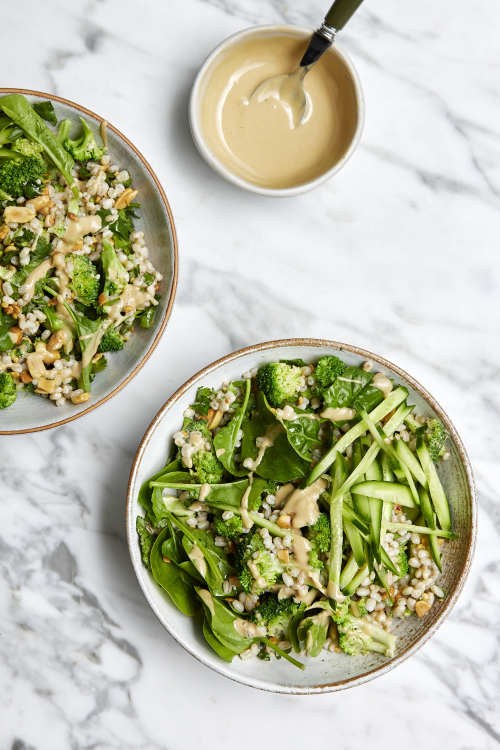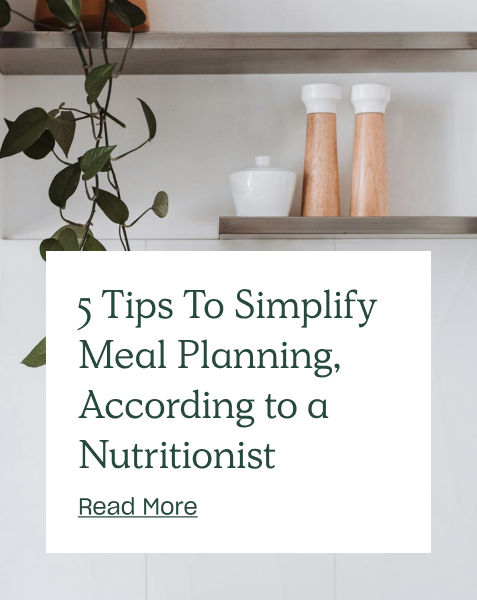By Sinead Berry, Registered Nutritionist (MSc, mBANT, rCNHC)
Eating healthily every day may seem overwhelming amidst a busy schedule of work, family, and social commitments. The usual routine of grabbing random ingredients for dinner on the way home from work can add to the stress when you’re tired, hungry and just want to get home. However, there’s a simple and organised solution: meal planning. This approach to eating eliminates the guesswork from meal times, helps you to stick to a budget, reduces food waste, and makes it easy to eat nutritionally balanced meals for breakfast, lunch, and dinner. Not only that, research shows that meal planning is linked with a healthier diet and lower obesity rates (1). While planning ahead may seem daunting and time-consuming initially, when done right, meal planning can be an absolute game-changer for establishing long-term healthy eating habits.
What exactly is meal planning?
Essentially, meal planning streamlines your week by organising everything in advance: choosing recipes, shopping for ingredients and doing as much prep work as possible. While it does require some initial effort, this approach guarantees to save you time and stress on busy days, plus it makes you far less likely to opt for less healthy choices. Regardless of your motivation for meal planning — whether it’s to add more variety to your diet, cope with long work hours, feed your family, save money (or your sanity!) — it should always be flexible and tailored to your needs, allowing room for any last-minute changes. You don’t have to plan every meal throughout the day in detail; start by focusing on the meal that causes you the most stress (dinner, am I right?) and have a few staple ideas for the other meals.
Sounds great, how do I start?
First things first, ensure your kitchen is stocked with essentials like tinned chopped tomatoes, lentils, beans, olive oil, tamari, miso paste, maple syrup, tahini, nut butter. Think of it as curating a capsule wardrobe for your kitchen. Also, do a weekly stock-take of what you already have in your fridge, freezer and cupboards, taking note of ingredients that need to be used up. Next, dedicate some time to sit down and plan your week. If you’re wondering how to create a realistic meal plan that works for you, here are my top five tips for planning a stress-free week.
1. Try one to two new recipes a week.
Selecting recipes is probably the most critical part of meal planning. Simplify busy days with quick and easy meals like traybakes, batch-cookers or ‘cook once, eat twice’ recipes. Be realistic about what you can achieve — if you have to ferry the kids to different after-school activities, or have a late one at the office, you’re not going to want to come home and make a slow-cooked stew. To maintain variety without feeling overwhelmed, stick to a few favourite, staple recipes and integrate one to two new ones each week.
To get inspired, take a look at our recipe library here.
2. Get everyone involved.
If you’re used to hearing the phrase “I don’t like that” when cooking for your family, encouraging children to help with meal planning is a simple solution to ensure everyone enjoys the healthy meals you prepare. Consider showing your kids a cookbook and letting them pick a meal for the week. Alternatively, when there’s time, encourage them to help prep some vegetables or toss together salad ingredients. Children often enjoy trying meals that they’ve had some role in preparing, even if it’s in the smallest of ways.













